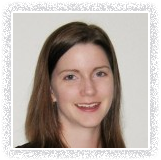The Morey lab has many talented contributors with strengths in diverse fields including psychiatry, neuroimaging, clinical neuroscience, biomedical engineering, computer science, psychology, as well as cognitive, affective, and social neuroscience.
Principal Investigator
 Dr. Rajendra Morey is an Associate Professor in the Department of Psychiatry at Duke University School of Medicine, Director of the Neuroimaging Core of the VA Mid-Atlantic Mental Illness, Research, Education, and Clinical Center (MIRECC), staff psychiatrist at the Durham VA Medical Center, and core faculty in the Duke-UNC Brain Imaging and Analysis Center (BIAC).
Dr. Rajendra Morey is an Associate Professor in the Department of Psychiatry at Duke University School of Medicine, Director of the Neuroimaging Core of the VA Mid-Atlantic Mental Illness, Research, Education, and Clinical Center (MIRECC), staff psychiatrist at the Durham VA Medical Center, and core faculty in the Duke-UNC Brain Imaging and Analysis Center (BIAC).
Dr. Morey received a B.S. in Computer Engineering and an M.S. in Computer Science from Case Western Reserve University, and a M.D. degree from Hahnemann University (now Drexel University) School of Medicine in 1997. After completing residency training in general psychiatry at the University of New Mexico and an NIMH extramural research fellowship at the University of North Carolina at Chapel Hill with Drs. Jeffrey Lieberman and Aysenil Belger, he started at Duke and the Durham VA.
Current research interests include: elucidating how PTSD symptoms alter the balance of prefrontal-limbic signaling during tasks of executive function, emotional distraction, symptom provocation, and memory function, leading to novel insights regarding the neural circuits associated with cognitive and emotional deficits in PTSD; developing a diagnostic approach for TBI using diffusion tensor imaging (DTI) that can be applied at the single subject level; and assessing the merits of competing neuroimaging methodologies for structural MRI morphometry and volumetry.
Dr. Morey’s favorite childhood book: Arthur and D.W.
Connect with Dr. Morey:
rajendra.morey@duke.edu
– Google Scholar
– Mentorship History
Collaborators
 Dr. Kevin LaBar, Ph.D. is Professor of Psychology and Neuroscience at Duke University. Dr. LaBar’s research emphasis is on the cognitive neuroscience of emotional learning and memory with particular focus on the role of the amygdala and hippocampus in fear-dependent learning. Drs. LaBar and Morey have collaborated for the past 5 years on several fMRI studies of veterans with PTSD, focusing on the imbalance of prefrontal-limbic signaling during tasks of executive function, emotional distraction, symptom provocation, and memory. Dr. Morey has published several manuscripts with Dr. LaBar and is embarking on a new phase of collaboration to determine whether fear generalization in PTSD can come under stimulus control to restore balance in the relevant fronto limbic pathways.
Dr. Kevin LaBar, Ph.D. is Professor of Psychology and Neuroscience at Duke University. Dr. LaBar’s research emphasis is on the cognitive neuroscience of emotional learning and memory with particular focus on the role of the amygdala and hippocampus in fear-dependent learning. Drs. LaBar and Morey have collaborated for the past 5 years on several fMRI studies of veterans with PTSD, focusing on the imbalance of prefrontal-limbic signaling during tasks of executive function, emotional distraction, symptom provocation, and memory. Dr. Morey has published several manuscripts with Dr. LaBar and is embarking on a new phase of collaboration to determine whether fear generalization in PTSD can come under stimulus control to restore balance in the relevant fronto limbic pathways.
– Visit Dr. LaBar’s Website
 Dr. Stephen Simons, Ph.D. is a Principal Scientist in the applied sciences division of Teledyne Scientific & Imaging in Durham, North Carolina. His primary research interests are in the fields of neurotechnology, systems neuroscience, and computational neuroscience. Dr. Simons has over fifteen years of experience in electrophysiology and neuroimaging methods, as well as in computational models of neural processing and algorithm development for complex signal analysis. Dr. Simons and his team are collaborating on and have developed an at home stimulation mechanism for the current study Clinical Outcomes for TBI and Suicidality in U.S. Veterans using transcranial direct current stimulation (tDCS).
Dr. Stephen Simons, Ph.D. is a Principal Scientist in the applied sciences division of Teledyne Scientific & Imaging in Durham, North Carolina. His primary research interests are in the fields of neurotechnology, systems neuroscience, and computational neuroscience. Dr. Simons has over fifteen years of experience in electrophysiology and neuroimaging methods, as well as in computational models of neural processing and algorithm development for complex signal analysis. Dr. Simons and his team are collaborating on and have developed an at home stimulation mechanism for the current study Clinical Outcomes for TBI and Suicidality in U.S. Veterans using transcranial direct current stimulation (tDCS).
 Dr. Robert Turner, Ph.D. is an Assistant Professor in the Department of Clinical Research and Leadership at The George Washington University School of Medicine & Health Sciences and holds a position as a Research Scientist in the Center for Biobehavioral Health Disparities Research at Duke University. Dr. Turner is an author, researcher, and former NFL player committed to serving his communities. He is a co-investigator on the current study identifying psychosocial and neurocognitive risk and protective factors, accelerated cognitive aging & mild traumatic brain injury (MTBI) among former NCAA Division I and former NFL athletes.
Dr. Robert Turner, Ph.D. is an Assistant Professor in the Department of Clinical Research and Leadership at The George Washington University School of Medicine & Health Sciences and holds a position as a Research Scientist in the Center for Biobehavioral Health Disparities Research at Duke University. Dr. Turner is an author, researcher, and former NFL player committed to serving his communities. He is a co-investigator on the current study identifying psychosocial and neurocognitive risk and protective factors, accelerated cognitive aging & mild traumatic brain injury (MTBI) among former NCAA Division I and former NFL athletes.
– Visit Dr. Turner’s Website
 Dr. Johnathan Weiner, M.D. is Senior Staff Psychiatrist at the Durham VA. He received his M.D. from the University of North Carolina at Chapel Hill and completed his psychiatry residence at Duke University. His is also a board certified Forensic Psychiatrist. He has been with the Durham VA Medical Center since 1992. His clinical expertise includes the treatment of Post Traumatic Stress Disorder, Chronic Mental Illness, and Addiction Medicine. He is a principal supervisor for training Duke psychiatry residents rotating in the outpatient Mental Health Clinic. His research interests include structural MRI morphometry and volumetry, fMRI, and diffusion tensor imaging (DTI) of PTSD and TBI.
Dr. Johnathan Weiner, M.D. is Senior Staff Psychiatrist at the Durham VA. He received his M.D. from the University of North Carolina at Chapel Hill and completed his psychiatry residence at Duke University. His is also a board certified Forensic Psychiatrist. He has been with the Durham VA Medical Center since 1992. His clinical expertise includes the treatment of Post Traumatic Stress Disorder, Chronic Mental Illness, and Addiction Medicine. He is a principal supervisor for training Duke psychiatry residents rotating in the outpatient Mental Health Clinic. His research interests include structural MRI morphometry and volumetry, fMRI, and diffusion tensor imaging (DTI) of PTSD and TBI.
 Dr. Gregory McCarthy, Ph.D. is Professor of Psychology and Director of the Human Neuroscience Laboratory at Yale University. He was the founding director of both the Mid-Atlantic MIRECC and the Duke-UNC BIAC. Dr. McCarthy is an international authority in MRI and fMRI methodology and its application to anxiety disorders and depression. He was the Dr. Morey’s K23 mentor prior to joining Yale University three years ago, but has maintained a formal relationship with the Mid-Atlantic MIRECC Neuroimaging Lab. Drs. Morey and McCarthy worked together closely after the founding of the MIRECC, where they spearheaded the formation of the MIRECC Registry. Dr. McCarthy is a senior consulting member of the MIRECC Neuroimaging Lab, providing ongoing guidance and long-term vision. He has worked closely with the Morey lab for over six years and co-authored numerous publications in PTSD and neuroimaging methods.
Dr. Gregory McCarthy, Ph.D. is Professor of Psychology and Director of the Human Neuroscience Laboratory at Yale University. He was the founding director of both the Mid-Atlantic MIRECC and the Duke-UNC BIAC. Dr. McCarthy is an international authority in MRI and fMRI methodology and its application to anxiety disorders and depression. He was the Dr. Morey’s K23 mentor prior to joining Yale University three years ago, but has maintained a formal relationship with the Mid-Atlantic MIRECC Neuroimaging Lab. Drs. Morey and McCarthy worked together closely after the founding of the MIRECC, where they spearheaded the formation of the MIRECC Registry. Dr. McCarthy is a senior consulting member of the MIRECC Neuroimaging Lab, providing ongoing guidance and long-term vision. He has worked closely with the Morey lab for over six years and co-authored numerous publications in PTSD and neuroimaging methods.
– Visit Dr. McCarthy’s Website
Data Analysts
 Courtney Haswell, M.S. is an analyst/programmer at the Duke-UNC Brain Imaging and Analysis Center. She received a B.S. in Biomedical Engineering with a minor in Physics from Virginia Commonwealth University, and a M.S. in Biomedical Engineering from Johns Hopkins University. Her thesis described the acquisition of internal models of motor control in children with autism and was published in Nature Neuroscience. As part of a graduate student medical device design team, her work on a portable negative pressure ventilation device contributed to the development of a novel method of electronically stimulating the phrenic nerve in emergency situations (patent pending). Previous research includes motor learning, autism, spectral analysis of speech signals, and biomechanics. Courtney is a member of Tau Beta Pi Engineering Honor Society. Outside of work, she loves spending time with her three kids, being outdoors hiking and biking, and exercising.
Courtney Haswell, M.S. is an analyst/programmer at the Duke-UNC Brain Imaging and Analysis Center. She received a B.S. in Biomedical Engineering with a minor in Physics from Virginia Commonwealth University, and a M.S. in Biomedical Engineering from Johns Hopkins University. Her thesis described the acquisition of internal models of motor control in children with autism and was published in Nature Neuroscience. As part of a graduate student medical device design team, her work on a portable negative pressure ventilation device contributed to the development of a novel method of electronically stimulating the phrenic nerve in emergency situations (patent pending). Previous research includes motor learning, autism, spectral analysis of speech signals, and biomechanics. Courtney is a member of Tau Beta Pi Engineering Honor Society. Outside of work, she loves spending time with her three kids, being outdoors hiking and biking, and exercising.
Connect with Courtney:
courtney.haswell@duke.edu
Graduate Students
Alexandra Dwulit, B.S, M.S. is from upstate New York and received her BS in Ecology and Evolutionary Biology and Minor in Neuroscience from the University of Rochester, while following a pre-medical track. She proceeded to get her MS in Behavioral Biology at Utrecht University in the Netherlands, looking at effects of sleep deprivation on behavior, cognition and neurogenesis of song learning in zebra finches. She did subsequent research on epigenetics and neurodegeneration in non-human primates at UC Davis. She is now pursuing her PhD in Comparative Biomedical Science at NC State, concentration in Neuroscience, in the lab of Dr. Matthew Breen with a co-mentorship with Dr. Morey at Duke. She is using neuroimaging and genetics tools to better understand the evolutionary underpinnings of PTSD and anxiety in humans and dogs. In her free time she loves fostering retriever mixes and playing and teaching tennis, as well as hiking, various nature crafts and traveling.
Alexandra’s Favorite Movie: Alpha
Connect with Alexandra:
alexandra.dwulit@duke.edu
Post-Bacc Research Assistants
 Christine “Lexi” Baird, B.S./B.A. is a research assistant and laboratory manager in the Morey Lab. She graduated with a B.S. in Neuroscience and a B.A. in English and Comparative Literature – Film Studies Concentration from the University of North Carolina at Chapel Hill. At UNC, she worked under Dr. Adam Miller and Dr. Margaret Sheridan to investigate the neural risk markers for self-injurious thoughts and behaviors (STBs) and how stressful life experiences affect brain development. Currently, Lexi is interested in using neuroimaging and neuropsychological methods to investigate the chronic and acute effects of traumatic brain injury with the goal of improving brain injury patient outcomes. Outside the lab, Lexi coaches boxing at UNC Chapel Hill, enjoys strength and fitness training, reading, and watching international films.
Christine “Lexi” Baird, B.S./B.A. is a research assistant and laboratory manager in the Morey Lab. She graduated with a B.S. in Neuroscience and a B.A. in English and Comparative Literature – Film Studies Concentration from the University of North Carolina at Chapel Hill. At UNC, she worked under Dr. Adam Miller and Dr. Margaret Sheridan to investigate the neural risk markers for self-injurious thoughts and behaviors (STBs) and how stressful life experiences affect brain development. Currently, Lexi is interested in using neuroimaging and neuropsychological methods to investigate the chronic and acute effects of traumatic brain injury with the goal of improving brain injury patient outcomes. Outside the lab, Lexi coaches boxing at UNC Chapel Hill, enjoys strength and fitness training, reading, and watching international films.
Lexi’s favorite childhood book(s): Goosebumps (Series)
Connect with Lexi:
christine.baird@duke.edu
 Ahmed Hussain, B.S. is a research assistant in the Morey Lab. He graduated from Duke University with a B.S. in Biology and a Pharmacology concentration, a minor in Neuroscience, and a minor in Chemistry. At Duke, he completed the pre-medical track and worked under Dr. Corinne Linardic to study Rhabdomyosarcoma, a soft tissue cancer. He also worked under Dr. Abou-Donia to study the neurotoxicological effects of Glyphosate, a widely-adopted herbicide. Ahmed is currently transitioning to the field of neural engineering and is very interested in investigating the potential of brain stimulation devices including temporally interfering fields as alternative treatment options for psychiatric and neurological disorders.
Ahmed Hussain, B.S. is a research assistant in the Morey Lab. He graduated from Duke University with a B.S. in Biology and a Pharmacology concentration, a minor in Neuroscience, and a minor in Chemistry. At Duke, he completed the pre-medical track and worked under Dr. Corinne Linardic to study Rhabdomyosarcoma, a soft tissue cancer. He also worked under Dr. Abou-Donia to study the neurotoxicological effects of Glyphosate, a widely-adopted herbicide. Ahmed is currently transitioning to the field of neural engineering and is very interested in investigating the potential of brain stimulation devices including temporally interfering fields as alternative treatment options for psychiatric and neurological disorders.
Ahmed’s favorite childhood book: Where the Sidewalk Ends
Connect with Ahmed:
ahmed.hussain1@duke.edu
Undergraduate Students
 Leonel Rangel Jimenez is an undergraduate at Duke University graduating in 2023. He is currently enrolled in the Pratt School of Engineering with the intent to major in Biomedical Engineering. Currently, his favorite course is his introductory design course, in which his team will be working to design a self-retaining retractor for endonasal surgeries. In the Morey lab, Leo is excited to develop an insight on the topic of temporally interfering fields and their applications for brain stimulation. Outside of school, Leo enjoys dancing to a variety of Latinx genres and loves anything that lets him tinker, such as 3D printing and woodworking.
Leonel Rangel Jimenez is an undergraduate at Duke University graduating in 2023. He is currently enrolled in the Pratt School of Engineering with the intent to major in Biomedical Engineering. Currently, his favorite course is his introductory design course, in which his team will be working to design a self-retaining retractor for endonasal surgeries. In the Morey lab, Leo is excited to develop an insight on the topic of temporally interfering fields and their applications for brain stimulation. Outside of school, Leo enjoys dancing to a variety of Latinx genres and loves anything that lets him tinker, such as 3D printing and woodworking.
Connect with Leo:
Leonel.rangel.jimenez@duke.edu
Lab Alumni
- Ashley Huggins, PhD
- Brandy S. Martinez, PhD
- Sarah Laskowitz
- Madeline Eckhardt
- Amanda Watts
- Karan Desai
- Molly Monsour
Medical Student at University of South Florida Morsani College of Medicine
- Emily Clarke-Rubright, M.A.
- Heather Bouchard
Clinical Psychology Graduate Student at University of Nebraska-Lincoln’s Center for Brain, Biology and Behavior
- Mary Nicole Buckley
Clinical Research Associate in the Affective Neuroscience and Developmental Psychopathology Lab at University of Pittsburgh
- Ashley Clausen, Ph.D.
Staff Health Psychologist at the Kansas City VA Medical Center
- Rachel Phillips
Graduate student in Clinical Psychology at University of North Carolina at Chapel Hill - Viraj Adduru
- Aurelio Falconi
Medical Student at Wake Forest School of Medicine - Gopalkumar Rakesh
Post-doctoral Fellow at the University of Kentucky - Arnav Pondicherry, M.D.
Resident Physician at Dartmouth-Hitchcock Medical Center - Clare Kehoe
- Loreanne Oh
Medical Student at U-Pittsburgh - Chelsea Swanson
Masters Student at UNC Chapel-Hill - Sarah Lancaster
- Andrea Gold, Ph.D.
Psychologist at the Pediatric Anxiety Research Center at Bradley Hospital - Shannon Beall, M.S.W., L.C.S.W.
Outpatient Therapist at Hope Services - Cassidy Fox
- Vanessa Brown
Graduate Student in Psychology - Avani Vora
Management and Business Administration Student at the University of Iowa - Jasmeet Pannu Hayes, Ph.D.
Assistant Professor of Clinical Psychology at The Ohio State University - Soyee Li
Research Coordinator at Henry Jackson Foundation - Jessica Nasser
Doctoral Student at Case Western Reserve University - Elizabeth Selgrade, M.S.P.O., C.O., L.O.
Certified Orthotist at Children’s at Meridian Mark and Children’s at Duluth - Srishti Seth
Doctoral Student at Catholic University - Christopher Petty
Systems Programmer at Duke-UNC BIAC - Debra Cooper, Ph.D.
Science Policy Fellow at California Council on Science and Technology